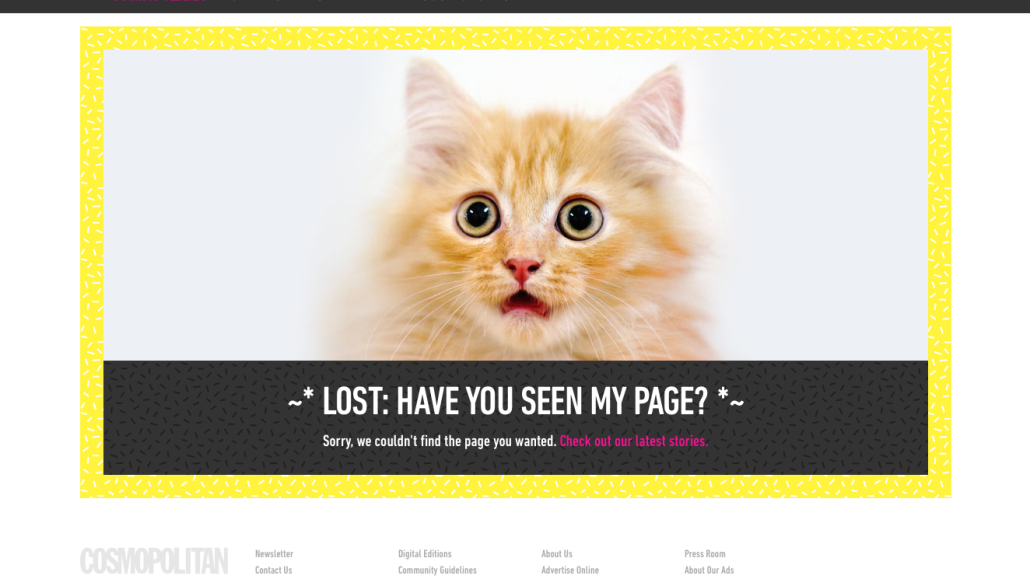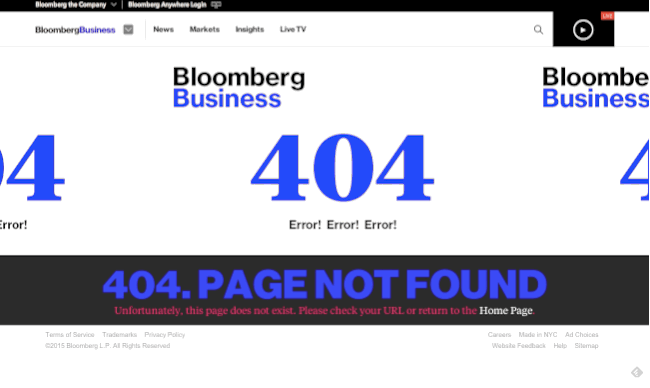Last chance to save on Digiday Publishing Summit passes is February 9

Everyone loves a good 404 page. Once a backwater of Web design, these pages are used to tell site visitors when they’ve reached a broken link. But a good 404 page can inject some unexpected humor and levity into a user experience that’s invariably dull and confusing. Publishers get that as well, and a few have truly upped the ante.
“I think that with anything you make, you should care about all the details,” said Bloomberg chief digital content officer Joshua Topolsky, who helped design one of the more unique 404 pages in recent memory for Bloomberg Politics. “This is just a little thing that we thought deserved consideration. Why not do something fun with it?”
To be sure, Bloomberg Politics isn’t alone. From Complex to Clickhole, here’s a look at some publishers’ more interesting, creative and downright strange 404 pages out in the wild:
Complex layers on the Kanye
Clickhole’s version of the Fail Whale is, well, a Fuck-Up Frog
The New Yorker digs into the archives
Vox: Let us explain
USA Today’s FTW scores on a fumble
Meow you see me, meow you don’t
We see what you did there. Nerds.
Over at the Dodo, unicorns. Obviously
Funny or Die goes for the not-actually-that-funny, low-hanging Al Gore fruit
NPR: Here are some other missing things
Bloomberg outdoes itself
More in Media

In Graphic Detail: The scale of the challenge facing publishers, politicians eager to damage Google’s adland dominance
Last year was a blowout ad revenue year for Google, despite challenges from several quarters.

Why Walmart is basically a tech company now
The retail giant joined the Nasdaq exchange, also home to technology companies like Amazon, in December.

The Athletic invests in live blogs, video to insulate sports coverage from AI scraping
As the Super Bowl and Winter Olympics collide, The Athletic is leaning into live blogs and video to keeps fans locked in, and AI bots at bay.

















